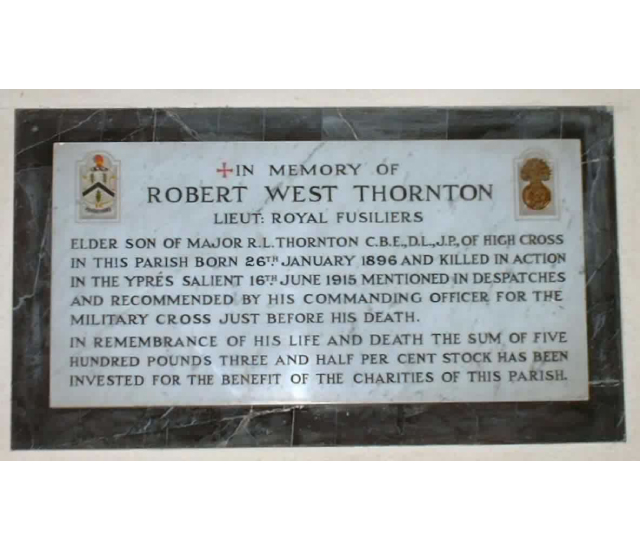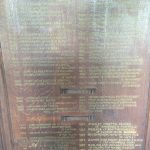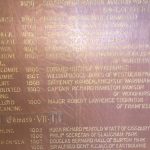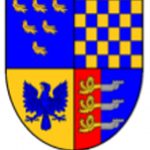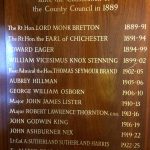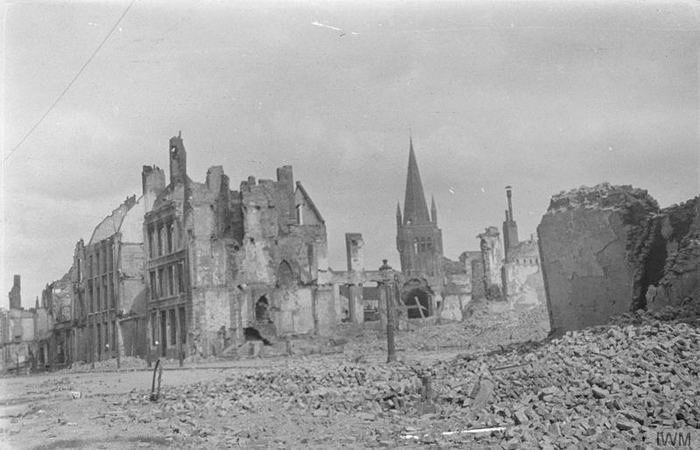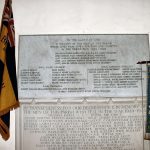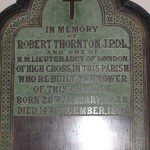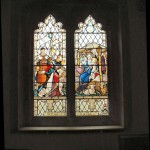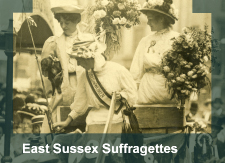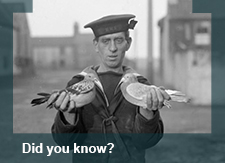During the First World War, whilst Major Robert Thornton served as Chairman of East Sussex County Council, his son was fighting in Belgium.
Born in 1865, Robert Lawrence Thornton had a long life of civic and military service. Although born in Surrey, it was with East Sussex that Robert became most closely associated. Robert served in the Royal Sussex Regiment from 1880 to 1901, with the majority of his time spent in the 3rd Battalion where he eventually achieved the rank of Major. During these years the Royal Sussex Regiment saw service in numerous countries and wars, including the Second Boer War.
For his devotion defending his country, Robert would later be made a Commander of the British Empire (CBE).
Alongside his military duties, Major Thornton would also hold many civic positions within East Sussex. He became the High Sheriff of East Sussex in 1900 having also become Justice of the Peace in 1892.
- Robert Lawrence Thornton as High Sheriff
- Robert Lawrence Thornton as High Sheriff
Robert Thornton also served as both the choirmaster and churchwarden for Framfield, the small village which he had made his home with his wife, Charlotte, and children, Robert West and Gerald.
Additionally he served as the President of the Royal Sussex County Hospital and held numerous positions within East Sussex County Council (ESCC) over 40 years.
East Sussex County Council
At the outbreak of the First World War the areas of Sussex that ESCC presided over were fairly different to the areas it is responsible for today. Whilst Brighton, Eastbourne, and Hastings were identified as independent county boroughs, Burgess Hill, Cuckfield, and East Grinstead were all part of East Sussex.
Major Robert Thornton was elected to the position of Chairman for ESCC in 1913 and served until 1916.
- East Sussex County Council Crest during the First World War
- Chairmen of East Sussex County Council
It was during this time period, Robert Thornton received devastating news regarding his eldest son; Robert West Thornton.
Lieutenant Robert West Thornton
Born in 1896, Robert West Thornton was first educated at Eton College before joining the Officer Training Corps of the British Army. He joined the Royal Military Academy at Sandhurst and was also given the rank of 2nd Lieutenant in the Royal Fusiliers.
Robert West was still in training, however, when war began in Europe and he would not depart for the continent until late November of 1914 when he was sent to the 4th Battalion of the Royal Fusiliers who were defending the Ypres Salient from the German Army.
The winter of 1914 into 1915 was characterised by bitterly cold conditions, heavy snow, and heavier casualties. By Easter of 1915, the original British Expeditionary Force had been largely destroyed by months of constant fighting around the increasingly ruined town of Ypres. Whilst reinforcements continued to arrive throughout 1915, they would not save Lieutenant Robert West Thornton.
In June of 1915, the order was given for British forces to attack German positions along a ridge that overlooked Ypres. The duty of capturing and holding the German front line trenches was given to the 4th Battalion of the Royal Fusiliers. Although initially successful in taking the German trenches, when the British attempted to press forward they sustained heavy casualties. Lieutenant Robert West Thornton was shot through the chest whilst commanding machine gun deployment.
Heavy artillery fire followed the attack and, when it was over, Robert West’s body was gone, never to be found. He is commemorated on the Menin Gate at Ypres.
Lieutenant Thornton had previously proved himself to be an accomplished soldier and was mentioned in dispatches by General Sir John French, and also later recommended for the Military Medal.
Framfield
The Thornton family held long links to the small village of Framfield. Lieutenant Robert West Thornton is commemorated within the local church on both an individual plaque and another memorial listing all from the area who died in the war. Robert Lawrence Thornton’s father had also once been a High Sheriff for East Sussex. He is also featured in a memorial plaque within Little Horsted Church
Both of Robert West’s grandparents, the father and mother of Robert Lawrence Thornton, are also commemorated within Framfield’s church by a wooden plaque and a stain-glass window.
- First World War Memorial Plaque in Framfield Church – Image Courtesy of Framfield Church
- Image Courtesy of Framfield Church
- Image Courtesy of Framfield Church
Major Robert Lawrence Thornton lived until the age of 81 before dying in 1947. His death was recorded in the Uckfield register.
Some images and information for this story are courtesy of Framfield Church

